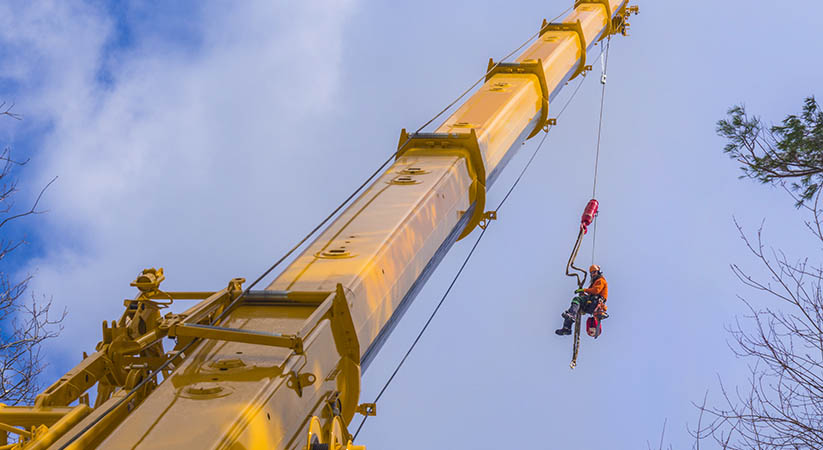Cranes are designed to lift and shift extremely heavy loads. The process requires following safety measures including preparing the jobsite for the crane to arrive from rigging companies. Even though cranes can be driven or transported to almost every location but require balance and stability when it comes to lifting heavy loads. So, to help you out, we have compiled a list of some important tips that will help you prepare your Jobsite the right way.
Complete The Paperwork
Before the cranes can enter the job site, the first thing you need to make sure of is completing the paperwork. This will mostly involve agreements between you and the rental company. You need to have everything mentioned on paper to avoid legal issues down the road.
Secondly, this is the perfect time where you get to ask the rental company some important questions regarding permits and licenses. Some states have strict regulations pertaining to cranes and construction sites, which can lead to heavy fines if neglected or ignored.
Ensuring Access
Once you have completed the paperwork, the next step is ensuring access. Remember, lifting and moving heavy loads is not a difficult task, ensuring proper access of the crane is. Cranes are big machines loaded with equipment, which means that you should make sure they can easily make it to their destination.
Check the entrance as well as any gates that come in the way of the crane while it enters the job site. If the gates are small, you will need to make adjustments for the crane to come through. Taking care of such things before the crane arrives saves a lot of time rather than working on them while the crane is waiting at the entrance.
Preparing The Terrain
This is perhaps the most complicated part of the process. As mentioned earlier, cranes need to be stable and balanced while navigating and performing loading and unloading tasks on site. At the same time, the crane should have enough space to move around and get near the load as well for easy lifting.
In addition to that, check the surroundings for power lines, scaffolding, and hidden obstacles that might make it complicated to operate the crane and could cause accidents. Plus, make sure the terrain is leveled enough to the point where the crane can keep its ground. If the terrain happens to be rocky or uneven, you will have to level it first before the crane can arrive.
Put Safety Measures In Place
Now that the terrain is prepared for the crane to arrive, you should focus your attention on the safety measures. This is important to protect human lives and prevent serious hazards. Check the weather forecast and make sure the weather is clear. Put up relevant warning signs and compile a safety plan to be distributed amongst the team. Furthermore, minimize distractions on the jobsite and make sure everyone is wearing safety equipment.
Make Sure You Are On The Same Page
The next important factor to keep in mind is making sure that you have decided everything with the rental company and both parties know their responsibilities. The job details should be clearly communicated between the two parties such as the type of crane to be used, distance requirements, the weight of the load, state and nature of the terrain, etc.
According to the protocols, the rental company should ask you for an accurate and up-to-date site plan. This helps them make a plan of how the cranes will be transported and whether or not they will be the right option for the job.
Pre-Site Inspection
Pre-site inspection is usually performed by experts from the crane services. They will inspect the weather conditions, ease of access, and ground stability. Based on the inspection, the experts will inform you of what you need to do to operate cranes safely.
Once they work out a lift plan, it will be shared with your team to be implemented to ensure everything goes smoothly.
Final Word
Concluding, preparing the job site before cranes arrive helps save time and allow you to make things safe and secure. Moreover, the crane rental service VA will help you out with adequate preparation as well to avoid accidents and harm.



